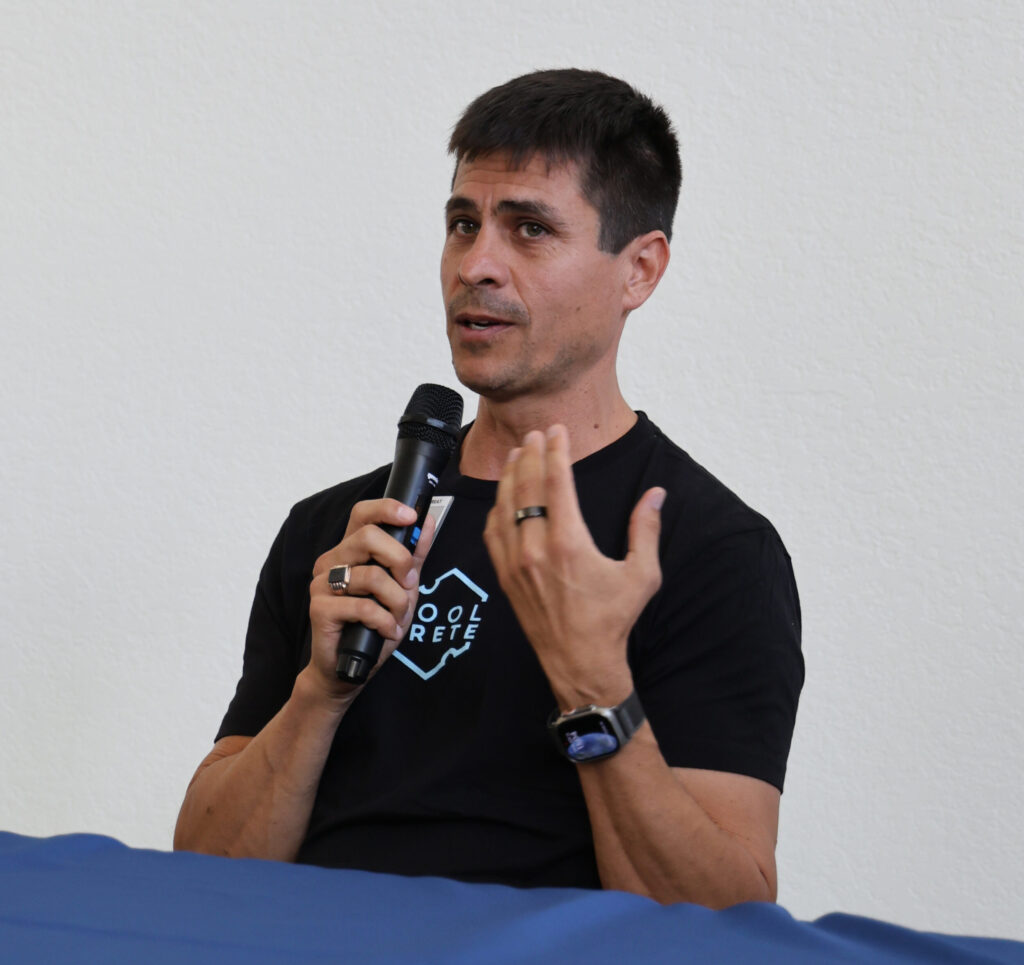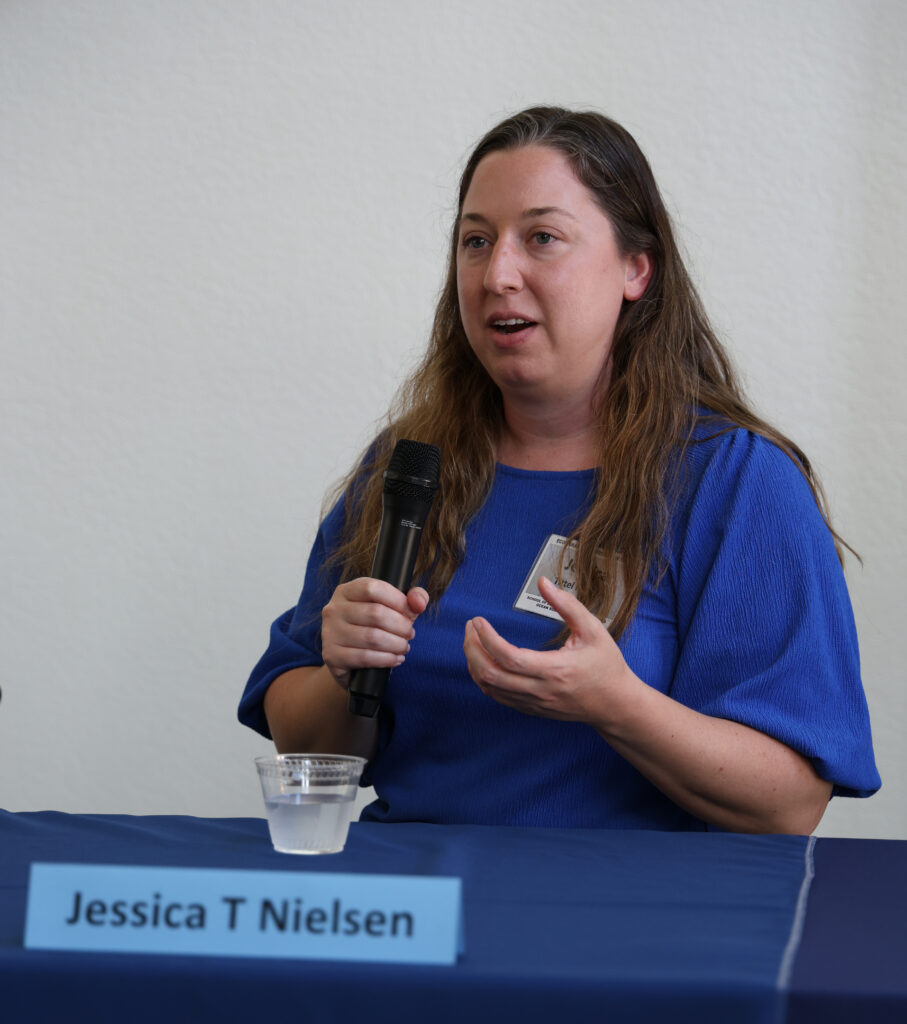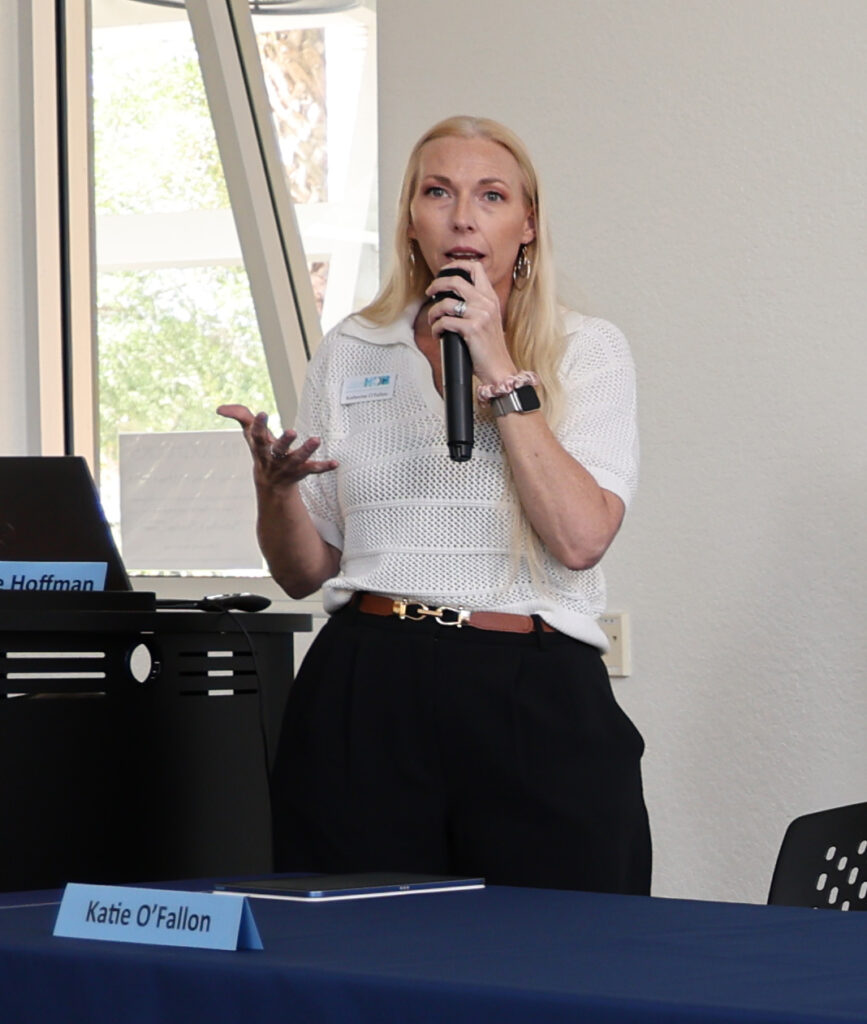By Arielle Perry, FAU Center for Environmental Studies
One Florida startup is tackling one of the world’s largest greenhouse gas emitters. The other is developing sustainable ingredients to replace harmful chemicals in everyday products such as cosmetics.

The founders of both startups spoke this month about the work required to expand their businesses at the annual retreat of the Florida Atlantic University School of Environmental, Coastal, and Ocean Sustainability (ECOS).
“We’re creating solutions to the biggest problem with one of the biggest emitters, which is the concrete industry, responsible for about 80% of global emissions, and it is the second-most-used material after water,” said Tim Sperry, founder and CEO of Boca Raton-based Carbon Limit. “So we figured, why not transform it into one of the biggest solutions?”
Sperry said his concrete solutions company aims to help decarbonize and cool cities. Partnering with entities such as Google and the Department of Defense to the Risk and Resilience Hub, Carbon Limit works to combat the urban heat island effect and reduce emissions. To support these efforts, Carbon Limit has developed CO2-absorbing concrete technology and concrete materials that better reflect solar energy.

Gainesville-based Cordelia Biosciences aims to replace fossil-fuel based chemicals with sustainable ingredients that come from microbes in corals. Co-founder and Chief Executive Officer Jessica Nielsen discussed how her business partners with chemical companies to provide them with these microbe-derived chemicals.
Microbes in the coral are like “tiny, little chemical manufacturers,” Nielsen said. “We look at those chemicals and we try to connect the chemical where the market needs.”
Both Carbon Limit and Cordelia Biosciences are connected through the Marine Research Hub. The nonprofit works to build Florida’s blue economy by connecting and fostering collaboration between research, business, education and economic development organizations in the South Florida region.
“We’re connecting the academic and innovation institutions with accelerators, incubators, with investment, with government, in terms of counties, municipalities and then workforce,” said Katherine O’Fallon, executive director of the Marine Research Hub.

Speakers also stressed the importance of leveraging university support in their business journey. Sperry explained how his company benefited from the resources at FAU.
“It was actually part of FAU’s Tech Runway, and that’s where we started. Then we got into a tech start program, all the mentors from FAU and from Techstars, and all the resources we already pulled together were really critical with making success,” he said.
Nielsen explained her company harnessed the University of Florida’s resources and mentorship programs to help grow their company from an idea to a reality.
“It’s the people who have done this for decades, who have sat down with us and talked to us and helped us learn how to lead a company and how to grow a company that has been more valuable than any project that we’ve ever gotten, or anything like that,” she said.
The importance of networking and building relationships was reiterated by O’Fallon throughout the panel discussion.
“One solution does not fit all. And so the more solutions that we can accelerate and lift … we can actually help take care of our environment, accelerate those jobs and businesses at a faster pace to keep up with the challenges that we are encountering,” she said.
Arielle Perry is a master’s student in the Environmental Science Program at Florida Atlantic University and is a graduate research assistant at FAU’s Center for Environmental Studies. The center manages The Invading Sea. Banner photo: Sperry speaks as other panelists listen during the discussion (Photo by Kimberly Vardeman).
Sign up for The Invading Sea newsletter by visiting here. To support The Invading Sea, click here to make a donation. If you are interested in submitting an opinion piece to The Invading Sea, email Editor Nathan Crabbe at nc*****@*au.edu. To learn more about Carbon Limit, watch the video below.



